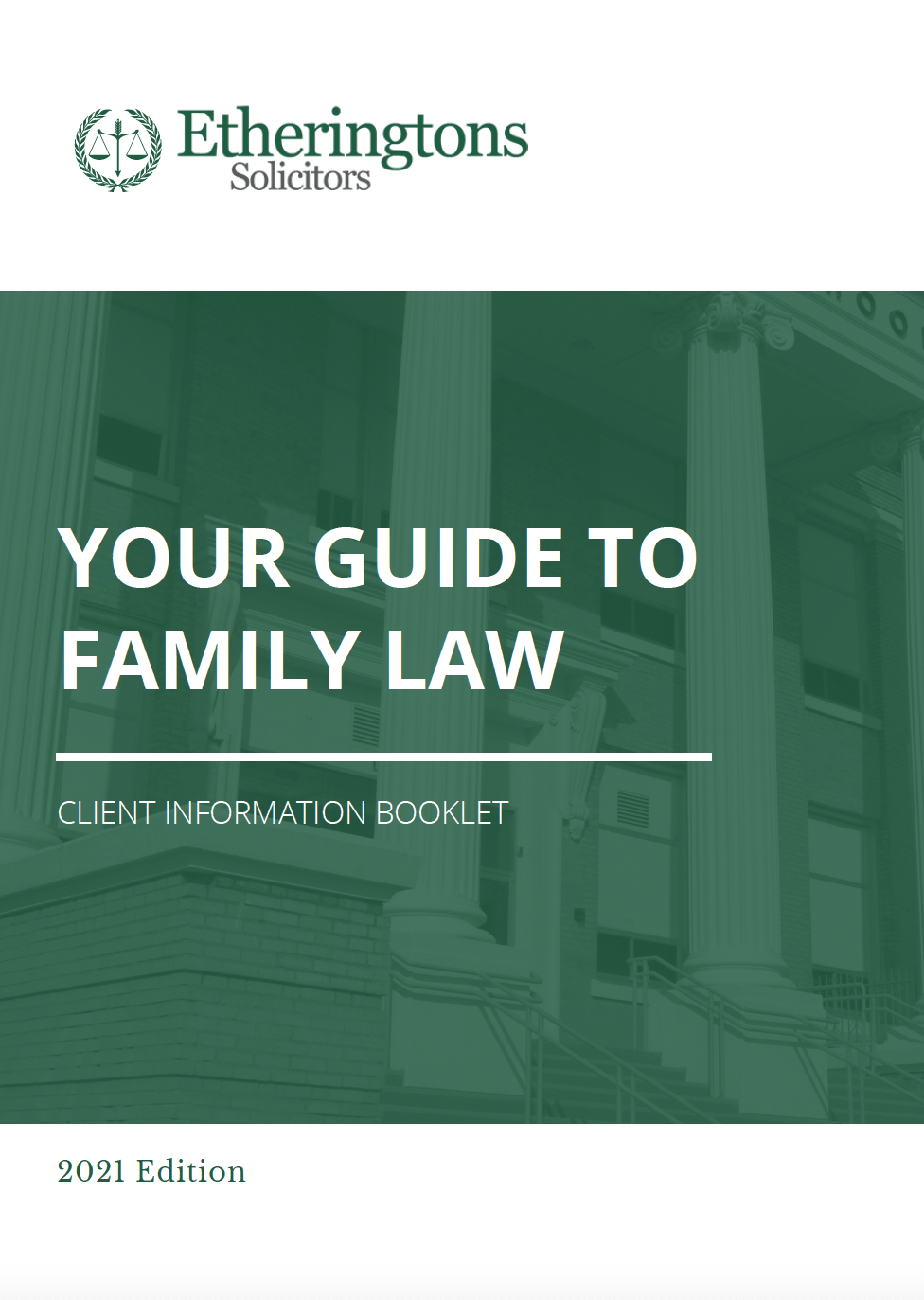Going through a divorce or a separation can result in anxiety and uncertainty about your future, the wellbeing of children and your financial security. The ability to think rationally and make decisions may be clouded and it can be hard to work out what to do next.
First steps after separating
- Prioritise personal safety. If you fear for the wellbeing of yourself or your children, contact your local police. If necessary, obtain advice about applying for a restraining order.
- If you and your ex-partner are on reasonable terms, make arrangements that are in your children’s best interests, that provide for minimal disruption in their routine, and foster a meaningful relationship with both parents.
- See a divorce lawyer – getting legal advice early can assist to clarify your legal rights, protect your interests and explore options for a reasonable outcome aimed at minimising lengthy and costly family law proceedings.
- Prepare a list of assets, loans, bank accounts, credit cards, and obtain originals or copies of important documents such as passports, marriage certificates, birth certificates and insurance policies.
- Update passwords and login details for email accounts and online banking.
- Review or make a Will to take into account your new personal circumstances and obtain advice, particularly about jointly held property.
Applying for a divorce
To legally end a marriage, an application is made to the Court. Australia has a no-fault divorce system and the Court is not concerned with attributing blame, however, to obtain a divorce order:
- the marriage must have broken down with no likelihood of reconciliation; and
- the parties must have lived separately and apart for a continuous period of 12 months; and
- if there are children under the age of 18 years, the Court must be satisfied that appropriate arrangements are in place for their care and wellbeing.
In determining whether a couple has lived apart for 12 months, the Court recognises that there are many reasons why a couple may choose to live under the same roof, despite their decision to separate. This may be for practical, financial, religious, cultural or other reasons. In such cases an affidavit, explaining these circumstances, is filed with the application for divorce.

Your Guide to Family Law
Navigating Family Law matters can often be a complex and onerous task. Etheringtons Solicitors can assist you with a range of Family Law matters, some of which are outlined in this booklet. We answer some of the most common questions posed by Family Law clients and provide a background to various Family Law matters.
Dividing property after separation or divorce
A legal property settlement formalises the division of the parties’ assets and liabilities and may be obtained as soon as a married or de facto couple separate. It is important to remember that any Court proceedings for a property settlement must be commenced within 2 years of the breakdown of a de facto relationship, and within 12 months after a divorce is granted.
Most divorce or separation related property settlements are finalised by negotiation between the parties and their legal advisors, without going to Court.
During negotiations, the steps for dividing property under the Family Law Act 1975 (Cth) generally apply. Essentially, the parties’ joint and individual assets, liabilities and financial resources are identified, and their respective financial and non-financial contributions assessed. The parties’ future needs are then taken into account and the proposed division of property should reflect a just and equitable outcome in all circumstances.
Once an agreement is reached, it can be legally documented in a financial agreement or consent orders. Court proceedings may be necessary as a last resort.
Why you should formalise the division of your property as soon as possible after divorce or separation?
It can be tempting to avoid formalising a legal property settlement, however there are good reasons for doing so.
The transfer of most real estate is liable to stamp duty, however certain exemptions apply when the property is transferred pursuant to the Family Law Act 1975 (Cth). These exemptions cannot be obtained through an informal agreement.
An informal property settlement is not legally recognised as bringing the couples’ financial affairs to finality, leaving them vulnerable to future issues such as a claim by either party on post-separation assets, income and inheritances.
Children’s matters
Arranging for the future care and welfare of children after a relationship breaks down can be stressful for the parents, the children and other family members. The best interests of the children will be paramount in all parenting matters and the Family Law Act 1975 (Cth) provides a presumption of shared parental responsibility, unless extenuating circumstances exist.
Parties should make genuine efforts to resolve disputes regarding parenting arrangements and may do so through considered negotiation with the assistance of their legal advisors. Agreements may then be set out in parenting plans or consent orders. Consent orders must be approved by the Court and are legally enforceable. Parenting plans are not approved by the Court but may be taken into consideration in any subsequent Court proceedings concerning the children.
If you need any assistance please contact Etheringtons Family Lawyers in North Sydney on 02 9963 9800 for a no-obligation discussion and for expert legal advice.
Frequently Asked Questions
Family Law – What Happens to Superannuation Upon Separation?
Am I Eligible to Apply for Divorce?
How Do I Apply for Divorce?
Are Assets Divided 50/50 in a Separation?
What is Spousal Maintenance?
What is a Child Support Agreement?
Is Money From Family a Gift or a Loan When Separating?
Why Aren't Binding Financial Agreements DIY?
Who Pays for the Waste of Assets in a Property Settlement?
How Assets Are Divided When Divorcing Later in Life?
How Long Will I Have to Pay Spousal Maintenance After Separation?
What Happens When A De-facto Relationship Breaks Down?
How Do I Protect My Home from My Ex-partner?
Is it worth getting a divorce lawyer?
If you’re considering getting a divorce in Sydney, you may be wondering whether or not you need one. While it’s possible to represent yourself in a divorce proceeding, there are many good reasons why it’s worth getting a divorce lawyer.
First and foremost, divorce lawyers have experience and expertise in family law. They understand the intricacies of the legal system and can guide you through the entire divorce process, from filing the initial paperwork to negotiating a settlement agreement. With their knowledge and guidance, you can feel confident that your legal rights are being protected and that you’re making informed decisions about your future.
Another advantage of working with a family lawyer is that they can help you navigate the emotional and practical challenges of divorce. Divorce is a major life change that can be overwhelming and stressful. A divorce lawyer can provide you with support and guidance during this difficult time, helping you make sense of your feelings and providing practical solutions to the challenges you face.
Family lawyers can also be instrumental in helping you achieve your desired outcome in a divorce settlement. Whether you’re seeking a fair division of assets, custody of your children, or other specific outcomes, a divorce lawyer can help you negotiate with your spouse and the court to achieve your goals. They can also help you avoid costly mistakes that could impact your future financial or emotional well-being.
Working with a divorce lawyer can also save you time and money in the long run. While it may seem counterintuitive to pay for legal services during a divorce, a good divorce lawyer can actually help you avoid costly mistakes that could drag out the divorce process or result in unfavourable outcomes.
If you’re considering getting a divorce in Sydney, it is a sensible idea to engage a divorce lawyer. With their experience, expertise, and compassion, they can help you navigate the legal, emotional, and practical challenges of divorce and achieve the outcome you desire. Don’t hesitate to contact Etheringtons Family Lawyers in North Sydney today to get the support and guidance you need during this difficult time.
What to expect after contacting Etheringtons Family Lawyers in North Sydney
If you are considering separating from your partner or getting a divorce, contacting a family lawyer who specialises in divorce, may seem a daunting step to take. However, our compassionate and experienced team here at Etheringtons Solicitors in North Sydney will provide you with the reassurance and guidance you will need, and they will help to make the process as smooth as possible.
After your initial enquiry is received, one of our assistants will contact you and you will be asked to provide more detailed information so that we can gain a better understanding of your situation.
You will then be referred to our experienced divorce lawyer, who will advise and assist with respect to the divorce process.
Our assistant will also help you to make an appointment for an initial consultation with our divorce lawyer. This can take place in person, by telephone or by Zoom. We will email you a questionnaire to complete prior to your appointment and also ask that you provide any relevant documents that you may have, as well as a brief chronology of significant events in your relationship. Obtaining this additional information will provide the family lawyer with a more in-depth background of your matter, prior to your appointment. This will ensure that your initial 30-minute consultation with our family lawyer is a productive one. During that initial consultation, our divorce lawyer will explore your situation further, ascertain your objectives and provide you with some preliminary advice on what steps you should take, to achieve those objectives.
If, after your initial consultation, you decide to engage us to assist you with your divorce, we will prepare a detailed costs agreement for you to consider. We will be transparent about our fees and we will work with you to develop a plan that best suits your needs.
At Etheringtons Solicitors we understand how difficult and emotional it is to navigate the breakdown of a relationship and we will provide you with the guidance and support that you need – not only for your divorce, but for any other Family Law issues that you may have. Our goal is to help you achieve the best possible outcome, whilst minimising the stress, anxiety and cost which is often associated with a divorce or Family Law proceedings.
Get In Touch
If you would like to meet with our family lawyer about a divorce or other Family Law issues, we invite you to contact us on 02 9963 9800 to make an appointment. We are conveniently located in the heart of North Sydney.
Read our latest articles about Family Law
Top 6 Power of Attorney Questions
A Power of Attorney is a legal document that gives a trusted person the legal authority to act for you and to make legally binding decisions on your behalf if you are unable to make these decisions yourself, such as in the case of serious illness. If you do not have a...
Relocation After Separation – What you need to know
In family law, one issue which may arise following a relationship separation where children are involved is ‘relocation’. Relocation is the legal term for moving with your child to another town, state or country after a divorce or separation. Relocation may raise...
Grandparents Rights: Saving your rights to see your grandchildren
In Australia, grandparents have unique legal rights to approach courts to obtain orders which allow them to spend time with their grandchildren. If you have concerns about the welfare of your grandchildren, you may need guidance about how to help protect them. What...




